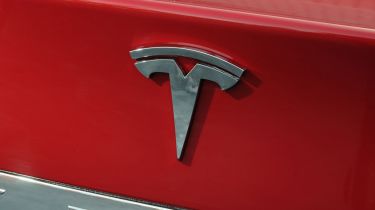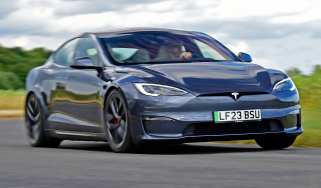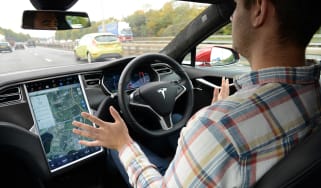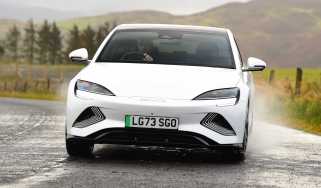Tesla denied Robotaxi trademark for its self-driving ‘robot taxi’
US authorities say Tesla’s proposed naming strategy for its autonomous EVs is too generic

The US Patent and Trademark Office has refused Tesla’s attempt to trademark the name Robotaxi for the self-driving vehicle behind its promised autonomous ride-hailing service.
The EV maker owned by Elon Musk has already aborted an attempt to trademark the name Cybercab for the vehicle it revealed last October, on the basis that other companies are also pursuing similar ‘cyber’ based trademarks.
The firm has yet to comment on either setback, but has recently confirmed a commitment to its first autonomous ride-hailing project being trialled in Austin, Texas within months.
Users of the service will initially be transported in Model Y taxis, but will subsequently have to put their trust in the autonomous car formerly known as the Cybercab, following its scheduled production launch in 2026.
This vehicle has no steering wheel, so any safety interventions will be handled by remote operators, leading US tech publication, Ars Technica, to comment: “Those operators will probably be quite busy”, adding that “last year independent testing showed that Tesla's ‘FSD’ (Full Self Driving) system averaged one human intervention every 13 miles, and there are numerous open investigations by the National Traffic Highway Safety Administration into Tesla's driver-assist systems”.
The USPTO says it based its decision to deny the Robotaxi trademark on evidence that the term has been used generically for 10 years or more, and has become merely descriptive.
“Tesla has fallen foul of an important rule that applies when attempting to register a trade mark – that is, it shouldn’t simply describe the new product or service, as this could be considered generic. It is better to opt for marks that are distinctive, and it is a good idea to seek pre-registration clearance and trade mark strategy advice in advance,” says Mark Caddle, a trademark attorney at intellectual property firm Withers & Rogers.
“One workaround for companies that are already committed to using a mark that could be considered generic, is to use it for a long time and apply to register it later. However, this is not straightforward and requires a lot of evidence to demonstrate that the mark is attributed to one business only and that consumers understand that the mark is associated with that business and its brand identity.
The USPTO decision may seem like a minor setback for Tesla, compared with pressure on global sales widely attributed to owner Elon Musk’s political activities in the US. The car firm recently stated it was reassessing growth forecasts due to shifting global trade policy, and changing political sentiment.
Subscribe to the UK's favourite car magazine: get Auto Express delivered every week...








